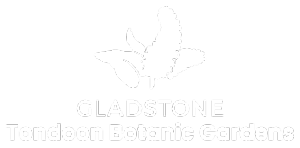Business
Community Leasing
Information for prospective lessees
Information for current lessees
Useful links
Resources
Gladstone Regional Council supports the community through the provision of land to a wide range of community organisations through leasing and licensing arrangements.
Information for prospective lessees
Community organisations wishing to lease land from Council can register their interest by submitting an Expression of Interest in Council Land. Expressions of Interest can be submitted for a particular property and are recorded in Council’s Expression of Interest register. As vacant properties become available, the properties will in most cases be offered through an Expression of Interest or tender process. This may, depending on the circumstances be released publicly or limited to organisations recorded in Council’s Expression of Interest register. In some situations, due to the nature of a property or community need, Council may offer a property directly to a particular organisation.
Vacant community leasing properties will be advertised on Council's website and as new properties become available Council will notify the community via our social media channels. Follow Council on Instagram and Facebook to keep updated.
To be eligible for a community lease, an organisation must:
- Be incorporated (under the Corporations Act 2001 (Cth),Associations Incorporations Act 1981 (Qld) or the Corporations (Aboriginal and Torres Strait Islander) Act 2006 (Cth);
- Be a Community Organisation as defined in the Local Government Regulation 2012 (Qld), that is:
- an entity that carries on activities for a public purpose; or
- another entity whose primary object is not directed at making a profit;
- Be based and have a membership base within the Gladstone Regional Council local government area;
- Not have any outstanding matters before Council (eg. unpaid rates or levies, outstanding invoices for council services; non-acquittal of funding from Council; breach of a condition of any other agreement with Council);
- Offer membership to any member of the public without conditions which Council considers unreasonable; and
- Satisfy Council that it is a reputable organisation and has the funds or is capable of obtaining sufficient funds to manage and maintain the leased property to an acceptable standard.
Council does offer leases to community organisations at rent below the market rate. At present, Sporting and Recreational Leases are limited to a maximum term of 10 years. The Lease or Licence Agreement will specify what purpose the Community Organisation can use the land for (“the Permitted Use”) and detail the Community Organisation’s obligations with respect to the property which generally includes an obligation to*:
- maintain a policy of insurance for all of the lessee’s property within the lease area;
- maintain a policy for public liability insurance;
- pay all outgoings including rates and levies, water, and services;
- maintain all of the lessee’s and Council’s property within the premises in good repair and condition; and
- not undertake any construction work within the lease area without first obtaining Council’s prior written consent.
*Community organisations should refer to their individual Lease or Licence Agreement for all rights and obligations relating to the Lease Area.
In addition to the conditions in a Lease or Licence Agreement, where the Lease Area is situated on a Reserve, the lease will also be subject to the provisions of the Land Act 1994 (Qld) and Land Regulation 2020 (Qld), specifically Schedule 3 of the Land Regulation 2020.
Council recommends that Community Organisations seek independent advice (legal and financial) prior to entering into a Lease or Licence Agreement with Council.
Information for current lessees
Council's property portfolio is administered by Council’s Strategic Property Management Team, however, many business units across Council contribute to the management of Community Leases. Our Customer Solutions team is the first point of contact for lessees.
Lessee’s can update their contact details (especially after an Annual General Meeting) by submitting a Lessee Information Statement.
Liquor/Gaming Permits and Licences
Any Community Organisation requiring Council’s Consent for a Liquor Application should complete and submit an Application for Council’s Consent. Applications should include a copy of the Council endeavours to process liquor applications as quickly as possible. However, Community Organisations should submit an application as early as possible and take into consideration processing times for the Office of Liquor and Gaming Regulation.
A Community Organisation’s eligibility for rates and water concessions can also be impacted by Liquor and Gaming Licences. For more information refer to Council’s General and Differential Rates Exemptions and Concessions Policy.
Lessee’s Maintenance Obligations
Most Leases and Licence Agreements require lessees to maintain all of the lessee’s and Council’s property within the lease area in good repair and condition. In addition to the obligations in a lease or licence, Community Organisations may have additional statutory obligations arising from legislation including but not limited to the Land Act 1994, Land Regulation 1994, Work Health and Safety Act 2011 (Qld), Electrical Safety Act 2002 (Qld) and Queensland Fire and Emergency Services Act 1990 (Qld).
In order to satisfy maintenance obligations, lessee’s should have in place maintenance strategies to ensure that maintenance is occurring as and when required and that the Community Organisation has allocated sufficient funds to undertake the maintenance activities.
The Community Leasing – Maintenance Schedule may assist lessees to plan and schedule maintenance activities.
IMPORTANT: Lessees must not construct or alter any improvements within the Lease Area without first obtaining Council’s Consent (also commonly referred to as a “Lessor’s Consent” or “Landlord’s Consent”).
Examples of activities that require lessees to obtain consent from Council include:
- Lodging a development application;
- Undertaking an event or activity within the Lease Area that is not consistent with the purpose of the lease;
- Submitting an application for a liquor licence or permit or gaming licence;
- Constructing a building, shed, shade structure, extension to an existing building;
- Installing lighting poles;
- Installing solar panels;
- Refurbishing the interior of a building;
- Installing a concrete slab;
- Removing a tree;
- Constructing or altering a dam or on-site drainage;
- Constructing an additional playing field; or
- Adding fill.
Requests for Council’s Consent must be submitted using Application for Council’s Consent. For more information refer to the Fact sheet – Obtaining Council’s Consent. A sample of the completed application for Council's consent document is also available
Council’s Maintenance Obligations
While Lessees are responsible for the day to day repair of the lease area and property within that lease area, the relevant Lease or Licence Agreement will also set out Council’s responsibilities. Typically, Council is responsible for major repair (structural) of its buildings within the Lease Area. Lessees should refer to the relevant Lease or Licence Agreement to determine Council’s maintenance responsibilities.
Where you have identified a maintenance issue that Council is responsible for, you can lodge a Lessee Maintenance Request using Council’s Online Services or by contacting a Council Office or Rural Transaction Centre. For anything requiring urgent attention, lodge your maintenance request by contacting Council on (07) 4970 0700.
Lessees should ensure that prior to lodging a Lessee Maintenance Request, they have reviewed their relevant Lease or Licence Agreement. If Council undertakes a repair on behalf of the Lessee, that should have been undertaken by the Lessee, Council may recover the costs of that repair from the Lessee.
Regardless of whose responsibility the maintenance is, Lessee’s should take immediate action to make the lease area safe e.g. evacuate the building, install barriers, call Ergon for fallen powerlines.
Always call 000 in the case of an emergency.
Community Leases and Licence Agreements identify when a lease or licence agreement is due to expire. In most cases, a Community Lease will be renewed and the Community Organisation will be offered the opportunity to occupy the Lease Area for a further term. In considering whether to renew a Lease or Licence Agreement for a further term, a number of factors are considered including:
- The Lessee’s use of the Lease Area for the Permitted Use;
- The Lessee’s history of compliance with the conditions of the Lease;
- Whether the use of the land is consistent with community needs;
- Whether the use of the land is consistent with the Most Appropriate Use (determined by Council); and
- Is a tender or Expression of Interest process required.
Council will initiate the renewal of a Community Lease in written correspondence to the Lessee and the Lessee will be required to complete a Lessee Information Statement. Lessee’s can also submit a Lessee Information Statement to Council at any time to exercise an option, request a variation of the conditions of a lease or to notify Council of a desire to terminate the Lease.
Where a Community Organisation occupies a Lease Area beyond the expiry date of a lease, Council considers that the Community Organisation is “holding over” under the terms of the expired lease on a month to month basis. This means that the conditions of the expired lease will continue to apply until a new lease has been entered into.
Each Community Lease or Licence Agreement will detail what happens when a lease expires and is not renewed, or a lease is terminated before the expiry date. Typically, Lessees will be required to remove all of the property from the Lease Area and leave the Lease Area in a clean and tidy condition. In some instances, Lessees will be required to return the Lease Area to the condition it was in at the commencement of the expired lease.
Lessees should refer to their individual Lease or Licence Agreement to determine their obligations and it is recommended that the Community Organisation obtains independent legal advice prior to terminating a Lease or Licence Agreement.
Gladstone Regional Council
Connect. Innovate. Diversify.
Get in Touch
Phone
(07) 4970 0700
Opening Hours
8.30am - 5pm Monday to Friday
Social media
Postal Address
PO Box 29, Gladstone Qld 4680
Council Offices
101 Goondoon Street, Gladstone Qld 4680
3 Don Cameron Drive, Calliope Qld 4680
41 Blomfield Street, Miriam Vale Qld 4677
Cnr Wyndham & Hayes Avenues, Boyne Island Qld 4680
Rural Transaction Centres
71 Springs Road, Agnes Water Qld 4677
47 Raglan Street, Mount Larcom Qld 4695
Footer Acknowledgement
Gladstone Regional Council would like to acknowledge the Bailai, the Gurang, the Gooreng Gooreng and the Taribelang Bunda people who are the traditional custodians of this land. Gladstone Regional Council would also like to pay respect to Elders both past, present and emerging, and extend that respect to other Aboriginal and Torres Strait Islander people. Learn more about Council's Reconciliation Action Plan (RAP).
Chat Popup
All content © Gladstone Regional Council. All Rights Reserved.
Back to the top







